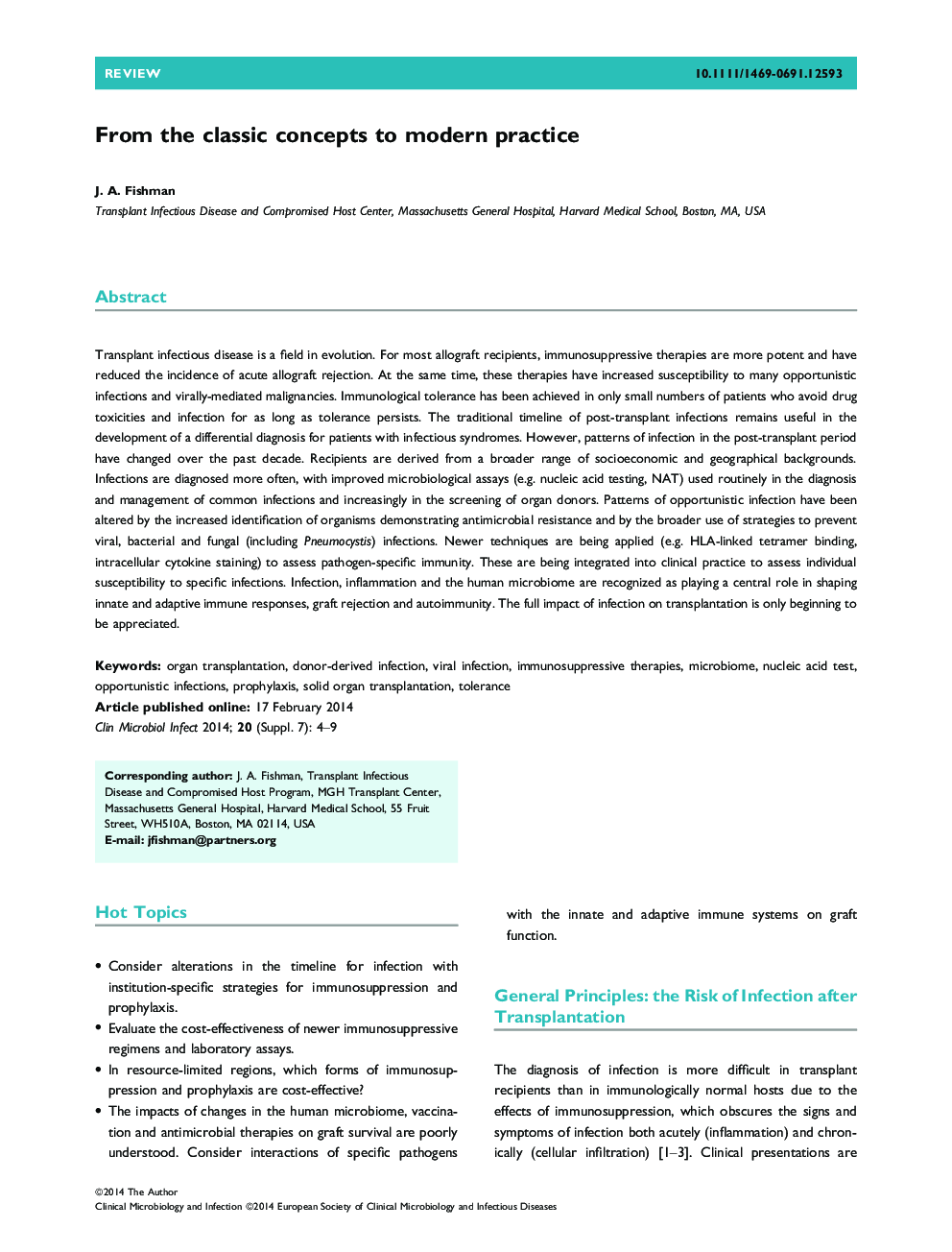| کد مقاله | کد نشریه | سال انتشار | مقاله انگلیسی | نسخه تمام متن |
|---|---|---|---|---|
| 3396548 | 1222177 | 2014 | 6 صفحه PDF | دانلود رایگان |
Transplant infectious disease is a field in evolution. For most allograft recipients, immunosuppressive therapies are more potent and have reduced the incidence of acute allograft rejection. At the same time, these therapies have increased susceptibility to many opportunistic infections and virally-mediated malignancies. Immunological tolerance has been achieved in only small numbers of patients who avoid drug toxicities and infection for as long as tolerance persists. The traditional timeline of post-transplant infections remains useful in the development of a differential diagnosis for patients with infectious syndromes. However, patterns of infection in the post-transplant period have changed over the past decade. Recipients are derived from a broader range of socioeconomic and geographical backgrounds. Infections are diagnosed more often, with improved microbiological assays (e.g. nucleic acid testing, NAT) used routinely in the diagnosis and management of common infections and increasingly in the screening of organ donors. Patterns of opportunistic infection have been altered by the increased identification of organisms demonstrating antimicrobial resistance and by the broader use of strategies to prevent viral, bacterial and fungal (including Pneumocystis) infections. Newer techniques are being applied (e.g. HLA-linked tetramer binding, intracellular cytokine staining) to assess pathogen-specific immunity. These are being integrated into clinical practice to assess individual susceptibility to specific infections. Infection, inflammation and the human microbiome are recognized as playing a central role in shaping innate and adaptive immune responses, graft rejection and autoimmunity. The full impact of infection on transplantation is only beginning to be appreciated.
Journal: Clinical Microbiology and Infection - Volume 20, Supplement 7, September 2014, Pages 4–9
